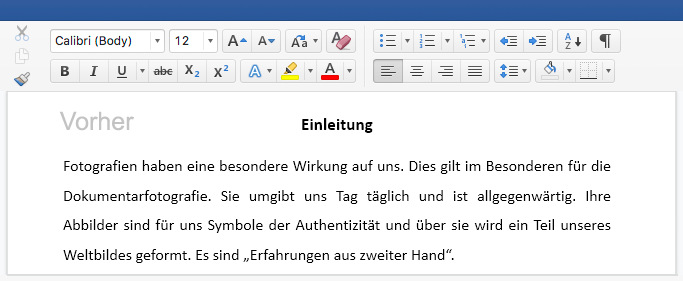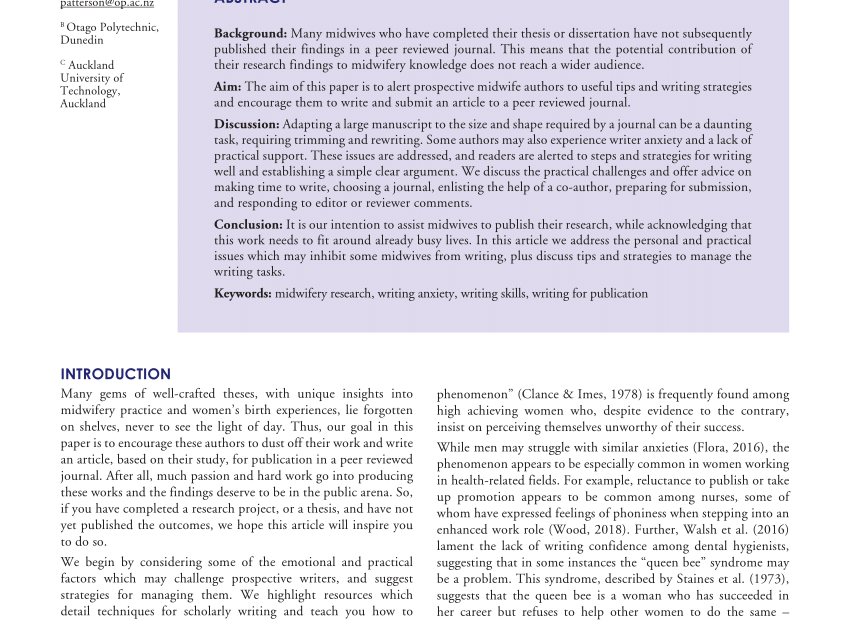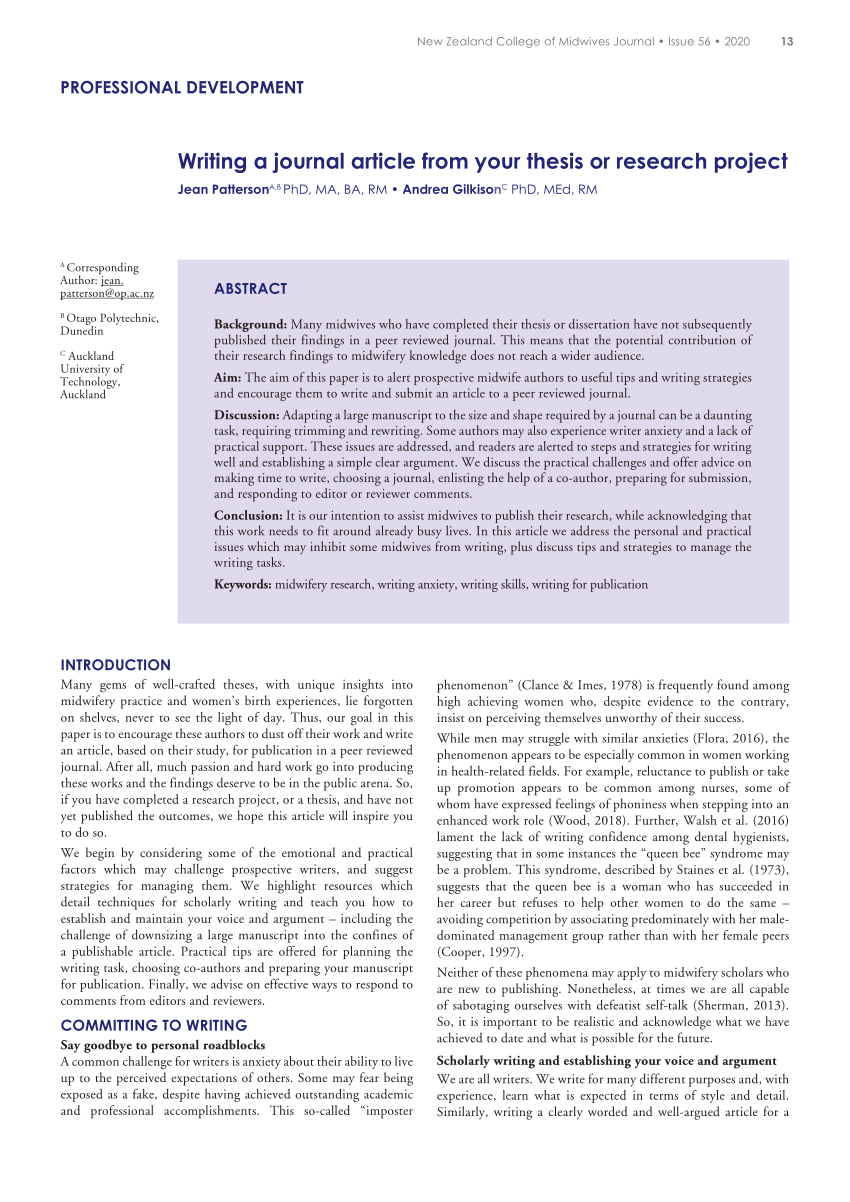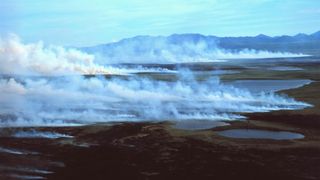Kostenlose Rechtschreibprüfung
Kostenlose plagiatsprüfung, korrektur deiner masterarbeit.
- Wissensdatenbank
- Masterarbeit
- Das perfekte Exposé deiner Masterarbeit

Das perfekte Exposé deiner Masterarbeit + Beispiel & Deckblatt
Veröffentlicht am 7. Januar 2019 von Mandy Theel . Aktualisiert am 29. November 2023.
Das Exposé deiner Masterarbeit ist circa 5-10 Seiten lang und dient als Fahrplan für deine Masterarbeit.
Texte schnell und einfach umschreiben
Text kostenlos umschreiben
Inhaltsverzeichnis
Dazu dient das exposé deiner masterarbeit, unterschiede zum exposé einer bachelorarbeit, der richtige aufbau des exposés deiner masterarbeit, exposé masterarbeit beispiel mit deckblatt, das exposé deiner masterarbeit fertigstellen.
Das Exposé deiner Masterarbeit bietet viele Vorteile:
- Du erstellst ein Rahmenkonzept, an dem du dich während des Schreibens deiner Masterarbeit orientieren kannst.
- Es hilft dir, Meilensteine zu bestimmen und Risiken oder Probleme frühzeitig zu erkennen.
- Das Exposé deiner Masterarbeit dient als Entscheidungsgrundlage für deine Betreuungsperson.
- Schreibst du deine Masterarbeit in einem Unternehmen , kann es zudem Teil deiner Bewerbung für die Masterarbeit sein.
- Du kannst dich mit deinem Exposé für Stipendien bewerben. Vergiss dabei nicht, eine Kostenplanung zu erstellen.
Ist deine Masterarbeit fehlerfrei?
Durchschnittlich enthält eine Masterarbeit 150 Fehler pro 1.000 Wörter .
Neugierig? Bewege den Regler von links nach rechts!

Lektorat Masterarbeit
Die Anforderungen an deine Masterarbeit sind höher als bei deiner Bachelorarbeit . In deiner Masterarbeit fokussierst du dich intensiver auf dein Forschungskonzept sowie deine Methodik .
Diese höheren Anforderungen sind auch in den Leitfäden der deutschen Hochschulen zu finden.
Mache deiner Leserschaft mit Hilfe deines Exposés deutlich, wie du diese erhöhten Anforderungen erreichen wirst.
Außerdem solltest du in deinem Exposé bereits die konkrete Zielsetzung deiner Masterarbeit sowie mögliche Ergebnisse skizzieren. Dies hilft dir dabei, die Komplexität und Umsetzbarkeit deines Themas richtig abzuschätzen.
Während das Exposé einer Bachelorarbeit im Schnitt 2-5 Seiten lang ist, beträgt die Länge eines Exposés einer Masterarbeit zwischen 5-10 Seiten .
Je nach Umfang der Masterarbeit können die Seitenzahlen auch darüber hinausgehen.
Das Exposé dient als Fahrplan für deine Masterarbeit . Daher ist es wichtig, dass du hier Schritt für Schritt deine Vorgehensweise beschreibst.
Das Exposé deiner Masterarbeit ist wie eine kleine wissenschaftliche Arbeit und sollte daher den wissenschaftlichen Vorgaben deiner Hochschule entsprechen.
Halte dich daher an die formalen Vorgaben deiner Hochschule, achte auf eine akademische Schreibweise sowie die Zitierrichtlinien (z. B. APA oder Harvard ).
| Teil des Exposés | Inhalt | Umfang |
|---|---|---|
| Deckblatt | 1 Seite | |
| Einleitung | ca. ½ Seite | |
| Zielsetzung | ca. ½ Seite | |
| Forschungsstand | ca. ½ Seite | |
| Forschungskonzept | + Begründung | ca. ½ – 1 Seite |
| Vorläufige Gliederung | zur Strukturierung | ca. 1 Seite |
| Zeitplan | (dient als Orientierung und hilft, Probleme frühzeitig zu erkennen) | ca. ½ Seite |
| Literaturverzeichnis | : Arbeite mit einer einheitlichen Zitierweise, die den Vorgaben deiner Hochschule entspricht. | ca. ½ – 1 Seite |
| Kostenplanung für Stipendienantrag (optional) | ca. ½ – 1 Seite |
Wir haben ein Exposé Beispiel inklusive Deckblatt für dich erstellt.
Du kannst dieses Beispiel als Leitfaden für dein eigenes Exposé nutzen oder das Beispiel als .docx-Dokument herunterladen und mit den Inhalten deiner Masterarbeit ersetzen.
Exposé Beispiel als .docx
Weitere Exposé-Vorlagen von Hochschulen
Schnell und einfach texte umschreiben.
Formuliere Sätze, Absätze oder ganze Texte im Handumdrehen um – mit unserem kostenlosen Textumschreiber.
Das Exposé ist der erste Eindruck deiner Masterarbeit. Es entscheidet darüber, ob dich eine Betreuungsperson oder ein Unternehmen für eine Zusammenarbeit auswählt.
Daher ist es essentiell, dass du die wissenschaftlichen Vorgaben deiner Hochschule einhältst. Dazu gehören einerseits die Zitierrichtlinien und andererseits die formalen Vorgaben wie das Layout deines Exposés.
Checkliste: Exposé schreiben
Thema, Fragestellung und Zielsetzungen sind klar.
Zeitplan und Deadlines sind aufgestellt.
Du hast einen prägnanten und passenden Arbeitstitel.
Dein Deckblatt und die Formatierung des Dokuments entsprechen den Kriterien deiner Uni.
Zusammenfassung, Problemstellung und Zielsetzung sind deutlich definiert.
Du hast den Forschungsstand präsentiert und dein Konzept enthält Fragestellung, Hypothesen und Methodik.
Die vorläufige Gliederung ist enthalten.
Deine Motivation und die Vorarbeiten sind dargelegt.
Du hast entsprechend den von deiner Uni gewünschten Standards zitiert und die Quellen angegeben.
(Bei Stipendienantrag) Dein Exposé enthält eine Kostenplanung, die den Förderkriterien entspricht.
Du bist nun bereit, dein Exposé einzureichen! Nutze im weiteren Verlauf deiner Abschlussarbeit einfach unsere anderen Checklisten.
Diesen Scribbr-Artikel zitieren
Wenn du diese Quelle zitieren möchtest, kannst du die Quellenangabe kopieren und einfügen oder auf die Schaltfläche „Diesen Artikel zitieren“ klicken, um die Quellenangabe automatisch zu unserem kostenlosen Zitier-Generator hinzuzufügen.
Theel, M. (2023, 29. November). Das perfekte Exposé deiner Masterarbeit + Beispiel & Deckblatt. Scribbr. Abgerufen am 7. Juni 2024, von https://www.scribbr.de/masterarbeit/expose-masterarbeit/
War dieser Artikel hilfreich?
Mandy Theel
Das hat anderen studierenden noch gefallen, so findest du dein perfektes masterarbeit thema, deine masterarbeit im unternehmen: stellenangebote, vergütung + anschreiben, aufbau und gliederung deiner masterarbeit, aus versehen plagiiert finde kostenlos heraus.
What's in a Thesis Exposé?
When I accept to supervise a thesis (be it a Bachelor, Master, or Doctoral Thesis), I will ask the candidate to produce, as the first milestone in the project, an exposé of his or her thesis. Its size and the time available for producing it differ for the three types of theses: For a Bachelor thesis, it should be available about 2-3 weeks after the formal thesis start; for a Master thesis after 1 month; for a Doctoral thesis after 3 months. However, the idea and structure are equal in all three cases.
A thesis is a one-person research project, and think of the exposé as a project plan. It needs to answer the questions: What is the goal of the project? Where does it start from? Why bother? What is the plan to run it in time? In terms of a research project and a thesis exposé, this leads, more sternly, to the sections:
Have you ever seen in a supermarket a bottle with the label saying “Bottle”? A can called “Can”? Yet, many students decide to call their theses exposé “Exposé”. That makes no sense – “Exposé” could be or appear in the subtitle, but the title should be the working(!) title of your planned thesis. Working title means it may well change in wording and/or detail while you are working on the subject for your thesis later until thesis submission, but it should reflect clearly the main goal and/or contribution of the planned thesis. Please don’t forget to put your name on the exposé as the author!
Describe the goal of your work. This may concern an analytical result (e.g., proving that P $\neq$ NP), or an empirical one (e.g., examine the performance of the HAYAI algorithm on gravel paths), or a constructive one (e.g., a new algorithm for stereo matching of images taken in complete darkness), or – most frequently for an Informatics thesis – a combination of the three (e.g., a new 3D scan matching algorithm running in O(log log n) and its evaluation in a botanical garden). Normally, the title of the thesis would reflect the goal.
Scientific and/or technological background
Give a sketch of the state of the art that your thesis sets out to improve. In an exposé, the sketch has to be very short and to the point, mentioning exactly the top most relevant papers. For a university thesis, the background includes stating which local equipment and results you will use, if any (e.g., a robot running the HAYAI algorithm).
If you have absolutely no idea where to start in order to reach your goal, you will probably not make it in time for thesis submission. State here where you will start working. In many cases (typically in Bachelor theses, often in Master theses), a particular approach is enforced as part of the thesis topic that you get.
Expected scientific and/or technological contribution
State briefly in what respect you expect your result to be significant. It should somehow improve on the state of the art, or provide new empirical data, or lead to a result that was never there before.
Work program
Break down your thesis project into smaller steps and make a schedule what you plan to do in which order and in what time. Plan in the order of weeks and months rather than days. If possible and useful, formulate milestones, i.e., important intermediate results. Plan the immediate future in more detail than the distant one. Don’t plan for doing all the technical work first, and writing everything down from scratch in the last three weeks: That will almost never work out! Plan to interleave the reading/thinking/programming/experimenting and the writing.
The author of the exposé is the candidate, i.e., you! Why?: Your thesis supervisors have normally an idea of the thesis topic that they give to you. Your formulation in the exposé shall make sure that you have the same understanding of what you are supposed to work on. Moreover, much of the exposé text may in fact go into your final thesis: a typical introduction shares much of the material with your exposé, and you should have written that yourself.
Be prepared, however, to adjust your topic while working on it! In fact, this is the norm rather than the exception, which leads to the final remark about the exposé: This is a plan for your thesis work, and, like all plans in life, is subject to revision in detail! Don’t hesitate to change details of what your exposé says, if it turns out to be necessary. However, do hesitate to change significantly the topic and approach of your thesis that you have described in your exposé – before you do that, consult your instructors!
Notes on writing a exposé
The first comprehensive written presentation of a research project takes place after the orientation and planning phase in the form of an exposé. It describes in a generally understandable way all essential aspects of the future project with regard to research context, research topic, research question, methods, sources and resources.
It is necessary or useful
- for the registration of research projects (theses, dissertations)
- for grant and research applications
- as an indicator of practicality and consistency of content
- as a basis for discussion
- as a starting point for the more detailed planning of a research project.
Both the preparation of the exposé, which often requires a clear structuring and verbalization of the research idea for the first time, is useful for the researcher, as is the fixed result, which forms a thematic, methodological and planning anchor for the duration of the research project - regardless of how far one eventually moves away from it. There are no uniform guidelines for exposés. In the field of audio communication, exposés for theses should have a length of 3-4 pages of text (Arial 11 point single-spaced), for dissertations a length of 6-8 pages is common, while applications for grants and project proposals also require a length of 10-15 pages. The synopsis should have the following structure:
Heavily abbreviated, synoptic statement of research need, research question, method, expected result, and benefits.
Introduction
Brief outline of the topic with a quick focus on the subject under investigation. For this purpose, aspects of the history of technology or a research tradition can be outlined, an existing theoretical background can be illuminated, a classification in research disciplines can be made and, if applicable, a personal research interest can be stated. The introduction of the topic should be focused on a concrete question, at the same time the relevance of the topic should be made clear, e.g. with regard to society, basic research or concrete applications.
State of the art of research
Overview of existing work in the thematically closer research area. The author conveys his/her knowledge of the subject and points out research deficits and, if applicable, points of contact to existing work. This results in the research relevance, a further thematic delimitation as well as possible methodological approaches.
The methods used to answer the question outlined above should be named and their suitability briefly justified. This can be a source research, a qualitative or quantitative analysis, an empirical procedure (with experimental design, effect criteria, variation of conditions, sample, operationalization or measuring instrument, technical means and statistical evaluation) or a technical procedure. Here, too, a reference to methodological literature and methodologically comparable studies is appropriate. If source work is in the foreground, description and assessment of the source situation with regard to type, extent, expected relevance and accessibility, possibly also in the form of a table or a sketch. At this point, reference should also be made to existing declarations of intent and agreements (e.g. with archives, laboratories, cooperation partners).
Preliminary work
If preliminary work has already been done that goes beyond the planning of the investigation (e.g. extensive research, production of objects of investigation or research tools, preliminary experiments), this should be listed with reference to specific points of contact.
Work plan and time schedule
A preliminary structuring of the time available for the project in the form of a work plan documents a realistic assessment of the sequence, structure and scope of the expected research work. A weekly schedule is recommended for smaller projects, and a monthly schedule for larger ones. Within these units, several small work steps can be listed.
List of literature used in the synopsis. It should already include the publications central to the research, even if additional sources and references are developed during the course of the work.
Helpful literature:
Kruse, Otto (2005). Keine Angst vor dem leeren Blatt: ohne Schreibblockaden durchs Studium. (Campus concret; 16). 11. Aufl. Frankfurt/Main, New York: Campus. Karmasin, Matthias und Ribing, Rainer (2006). Die Gestaltung wissenschaftlicher Arbeiten. (UTB 2774), Wien: WUV Facultas

CampusJames

Writing Thesis Exposé – Professional Tips + Examples
What is a Thesis Exposé, do I need it for my Thesis and what should I pay attention to? Here are the guidelines for the exposé of your thesis.
How do I find the right thesis topic?
Your thesis will take some time to complete. Therefore, you should choose a topic for your thesis that at least interests you, and better yet, excites you. Something you’re passionate about and feel like really diving into. Ideally, and to simplify your thesis, you also have some prior knowledge of the topic. This can also benefit you at the latest when you defend your thesis.
The topic of your thesis is either given to you by your professor, or you can choose it yourself. It just has to have something to do with your field of study. First of all, you should look into the exact requirements of your study program and find out whether a scientific or practice-oriented focus should be implemented and whether there are any specifications regarding the scope of your thesis.
Ask your professor
In almost every university you can go to a consultation with your professor. There you can roughly explain which topics you are also involved with outside of your studies. Together with your professor, find a connection to your studies and work out a topic.
Current literature
Are there any recent publications in your field , perhaps? Check the optional seminar reading or the journals in your library. You can find many current sources on Google Scholar or other online databases , for example.
Brainstorming
Write down any ideas, experiences, and anything else that comes to mind. Under each topic, you can collect bullet points and write down what you already know about it and how much the topic interests you.
Past seminar papers
Maybe you’ve already written a cool term paper and can tie in with the research? Are there any questions that are still unanswered from your point of view? Were there any lecture topics that particularly interested you?
Exchange ideas with other fellow students
Meet and interact with your fellow students . Often the thoughts of others already bring you to a good topic. In the same way, of course, you can ask friends and family who are not experts.
Professional direction
Do you already know what you want to do for a living after graduation? Then it would be beneficial to write your paper on a topic from the industry that might interest and impress your future employer .
Your already gained experience
Your experience as an intern or working student can help you in choosing a topic. Ask leaders or staff and get inspired.
Why write a synopsis?
One of the most important parts of your thesis is the exposé. But why actually? The synopsis is a scientific project plan that helps you to formulate the research question precisely, to narrow down your topic, and to give you a structured overview of the content and schedule of your work.
The synopsis should serve as a guideline before the actual writing of your thesis. Often the exposé is required by your supervisor after you have chosen your topic and possibly already dealt with the problem or question.
However, the exposé is not binding. Because your ideas, structures or even your title can always change during the writing process of your thesis. Especially in the beginning, the synopsis can help you sort out your thoughts and ideas.
An exposé has many advantages. It helps you get an overview of your ideas and organize them. Also, you can impress your supervisor with the fact that you have studied the topic and it is relevant. Best of all, it can save you a lot of time writing later. It also serves as a basis for discussions with your supervisor to avoid misunderstandings and to comply with university guidelines.
The contents of an exposé for your thesis
So now we know that the synopsis is an outline of your planned scientific work. But what actually belongs in the exposé and how is it structured?
Here you write a brief introduction and presentation of your research topic and justify its relevance.
Objective and state of knowledge
At this point, you describe what you want to have found out at the end of your research project and why.
State of research and theoretical basis
Now you give a small overview of the existing literature and a theoretical basis for your research.
Research concept
Your concept is the most important element in your synopsis. At this point you present your hypothesis , your research question and also your methodology .
Preliminary outline
Then, even if your outline is not final, you can structure and list your ideas.
This is where you tabulate your schedule .
Bibliography
Last, show your correctly cited review of your sources used and literature relevant to you.
What do I have to pay attention to in the exposé for my thesis?
It is important for your exposé to clearly formulate your topic, the research question and the objective . Make sure you have a concise and appropriate working title and that your timeline and deadlines are set. It is also important to make sure that you adhere to the appropriate criteria of your university with your cover page and document formatting.
Frequently asked questions about: Thesis Exposé
The synopsis should be 2-5 pages long on average. Regardless of whether you are writing a synopsis for your bachelor’s thesis, master’s thesis or dissertation.
The synopsis is a preliminary plan for your thesis. Therefore, all essential information that will be relevant for your work later on must be included here. This includes a summary of the question and the main part, as well as an outline and a timetable.
Dei Expose should not be longer than 3-4 pages, maximum 5 pages.
Edited at: December 7, 2022
How useful was this post?
Click on a star to rate it!
Average rating 5 / 5. Vote count: 1
No votes so far! Be the first to rate this post.
- Deutsch ( German )
How to Write a Master's Thesis: A Guide to Planning Your Thesis, Pursuing It, and Avoiding Pitfalls
#scribendiinc
Part 1: Initial Considerations
Who needs to write a master’s thesis.
Thesis writing is one of the more daunting challenges of higher education. That being said, not all master's students have to write a thesis. For example, fields that place a stronger emphasis on applied knowledge, such as nursing, business, and education, tend to have projects and exams to test students on the skills and abilities associated with those fields. Conversely, in disciplines that require in-depth research or highly polished creative abilities, students are usually expected to prove their understanding and independence with a thesis.
What's Your Goal?
Do you want to write a thesis? The process is a long one, often spanning years. It's best to know exactly what you want before you begin. Many people are motivated by career goals. For example, hiring managers may see a master's degree as proof that the candidate is an expert within their field and can lead, motivate, and demonstrate initiative for themselves and others. Others dream of earning their doctorate, and they see a master's degree as a stepping stone toward their Ph.D .

No matter what your desired goal is, you should have one before you start your thesis. With your goal in mind, your work will have a purpose, which will allow you to measure your progress more easily.
Major Types of Theses
Once you've carefully researched or even enrolled in a master's program—a feat that involves its own planning and resources —you should know if you are expected to produce a quantitative (which occurs in many math and science programs), qualitative (which occurs in many humanities programs), or creative (which occurs in many creative writing, music, or fine arts programs) thesis.
Time and Energy Considerations
Advanced degrees are notoriously time and energy consuming. If you have a job, thesis writing will become your second job. If you have a family, they will need to know that your thesis will take a great deal of your attention, energy, and focus.

Your studies should not consume you, but they also should not take a back seat to everything else. You will be expected to attend classes, conduct research, source relevant literature, and schedule meetings with various people as you pursue your master's, so it's important to let those you care about know what's going on.
As a general note, most master's programs expect students to finish within a two-year period but are willing to grant extra time if requested, especially if that time is needed to deal with unexpected life events (more on those later).
Part 2: Form an Initial Thesis Question, and Find a Supervisor
When to begin forming your initial thesis question.
Some fields, such as history, may require you to have already formed your thesis question and to have used it to create a statement of intent (outlining the nature of your research) prior to applying to a master’s program. Others may require this information only after you've been accepted. Most of the time, you will be expected to come up with your topic yourself. However, in some disciplines, your supervisor may assign a general research topic to you.
Overall, requirements vary immensely from program to program, so it's best to confirm the exact requirements of your specific program.
What to Say to Your Supervisor
You will have a supervisor during your master's studies. Have you identified who that person will be? If yes, have you introduced yourself via email or phone and obtained information on the processes and procedures that are in place for your master's program? Once you've established contact, request an in-person meeting with him or her, and take a page of questions along with you. Your questions might include:
- Is there a research subject you can recommend in my field?
- I would like to pursue [target research subject] for my thesis. Can you help me narrow my focus?
- Can you give me an example of a properly formatted thesis proposal for my program?
Don't Be Afraid to Ask for Help (to a Degree)
Procedures and expectations vary from program to program, and your supervisor is there to help remove doubt and provide encouragement so you can follow the right path when you embark on writing your thesis. Since your supervisor has almost certainly worked with other graduate students (and was one at some point), take advantage of their experience, and ask questions to put your mind at ease about how to write a master’s thesis.
That being said, do not rely too heavily on your supervisor. As a graduate student, you are also expected to be able to work independently. Proving your independent initiative and capacity is part of what will earn you your master's degree.
Part 3: Revise Your Thesis
Read everything you can get your hands on.
Whether you have a question or need to create one, your next step is simple and applies to all kinds of theses: read.

Seek Out Knowledge or Research Gaps
Read everything you can that relates to the question or the field you are studying. The only way you will be able to determine where you can go is to see where everyone else has been. After you have read some published material, you will start to spot gaps in current research or notice things that could be developed further with an alternative approach. Things that are known but not understood or understood but not explained clearly or consistently are great potential thesis subjects. Addressing something already known from a new perspective or with a different style could also be a potentially valuable project. Whichever way you choose to do it, keep in mind that your project should make a valuable contribution to your field.

Talk with Experts in Your Field (and Don't Be Afraid to Revise Your Thesis)
To help narrow down your thesis topic, talk to your supervisor. Your supervisor will have an idea of what is current in your field and what can be left alone because others are already working on it. Additionally, the school you are attending will have programs and faculty with particular areas of interest within your chosen field.
On a similar note, don't be surprised if your thesis question changes as you study. Other students and researchers are out there, and as they publish, what you are working on can change. You might also discover that your question is too vague, not substantial enough, or even no longer relevant. Do not lose heart! Take what you know and adjust the question to address these concerns as they arise. The freedom to adapt is part of the power you hold as a graduate student.
Part 4: Select a Proposal Committee
What proposal committees are and why they're useful.
When you have a solid question or set of questions, draft a proposal.

You'll need an original stance and a clear justification for asking, and answering, your thesis question. To ensure this, a committee will review your thesis proposal. Thankfully, that committee will consist of people assigned by your supervisor or department head or handpicked by you. These people will be experts who understand your field of study and will do everything in their power to ensure that you are pursuing something worthwhile. And yes, it is okay to put your supervisor on your committee. Some programs even require that your supervisor be on your committee.
Just remember that the committee will expect you to schedule meetings with them, present your proposal, respond to any questions they might have for you, and ultimately present your findings and thesis when all the work is done. Choose those who are willing to support you, give constructive feedback, and help address issues with your proposal. And don't forget to give your proposal a good, thorough edit and proofread before you present it.
How to Prepare for Committee Meetings
Be ready for committee meetings with synopses of your material for committee members, answers for expected questions, and a calm attitude. To prepare for those meetings, sit in on proposal and thesis defenses so you can watch how other graduate students handle them and see what your committee might ask of you. You can even hold rehearsals with friends and fellow students acting as your committee to help you build confidence for your presentation.

Part 5: Write Your Thesis
What to do once your proposal is approved.
After you have written your thesis proposal and received feedback from your committee, the fun part starts: doing the work. This is where you will take your proposal and carry it out. If you drafted a qualitative or quantitative proposal, your experimentation or will begin here. If you wrote a creative proposal, you will now start working on your material. Your proposal should be strong enough to give you direction when you perform your experiments, conduct interviews, or craft your work. Take note that you will have to check in with your supervisor from time to time to give progress updates.

Thesis Writing: It's Important to Pace Yourself and Take Breaks
Do not expect the work to go quickly. You will need to pace yourself and make sure you record your progress meticulously. You can always discard information you don't need, but you cannot go back and grab a crucial fact that you can't quite remember. When in doubt, write it down. When drawing from a source, always create a citation for the information to save your future self time and stress. In the same sense, you may also find journaling to be a helpful process.
Additionally, take breaks and allow yourself to step away from your thesis, even if you're having fun (and especially if you're not). Ideally, your proposal should have milestones in it— points where you can stop and assess what you've already completed and what's left to do. When you reach a milestone, celebrate. Take a day off and relax. Better yet, give yourself a week's vacation! The rest will help you regain your focus and ensure that you function at your best.
How to Become More Comfortable with Presenting Your Work
Once you start reaching your milestones, you should be able to start sharing what you have. Just about everyone in a graduate program has experience giving a presentation at the front of the class, attending a seminar, or watching an interview. If you haven't (or even if you have), look for conferences and clubs that will give you the opportunity to learn about presenting your work and become comfortable with the idea of public speaking. The more you practice talking about what you are studying, the more comfortable you'll be with the information, which will make your committee defenses and other official meetings easier.
Published authors can be called upon to present at conferences, and if your thesis is strong, you may receive an email or a phone call asking if you would share your findings onstage.
Presenting at conferences is also a great way to boost your CV and network within your field. Make presenting part of your education, and it will become something you look forward to instead of fear.
What to Do If Your Relationship with Your Supervisor Sours
A small aside: If it isn't already obvious, you will be communicating extensively with others as you pursue your thesis. That also means that others will need to communicate with you, and if you've been noticing things getting quiet, you will need to be the one to speak up. Your supervisor should speak to you at least once a term and preferably once a week in the more active parts of your research and writing. If you give written work to your supervisor, you should have feedback within three weeks.
If your supervisor does not provide feedback, frequently misses appointments, or is consistently discouraging of your work, contact your graduate program advisor and ask for a new supervisor. The relationship with your supervisor is crucial to your success, especially if she or he is on your committee, and while your supervisor does not have to be friendly, there should at least be professional respect between you.
What to Do If a Crisis Strikes
If something happens in your life that disrupts everything (e.g., emotional strain, the birth of a child, or the death of a family member), ask for help. You are a human being, and personal lives can and do change without warning. Do not wait until you are falling apart before asking for help, either. Learn what resources exist for crises before you have one, so you can head off trauma before it hits. That being said, if you get blindsided, don't refuse help. Seek it out, and take the time you need to recover. Your degree is supposed to help you become a stronger and smarter person, not break you.
Part 6: Polish and Defend Your Master's Thesis
How to write a master’s thesis: the final stages.
After your work is done and everything is written down, you will have to give your thesis a good, thorough polishing. This is where you will have to organize the information, draft it into a paper format with an abstract, and abbreviate things to help meet your word-count limit. This is also where your final editing and proofreading passes will occur, after which you will face your final hurdle: presenting your thesis defense to your committee. If they approve your thesis, then congratulations! You are now a master of your chosen field.
Conclusion and Parting Thoughts
Remember that you do not (and should not) have to learn how to write a master’s thesis on your own. Thesis writing is collaborative, as is practically any kind of research.

While you will be expected to develop your thesis using your own initiative, pursue it with your own ambition, and complete it with your own abilities, you will also be expected to use all available resources to do so. The purpose of a master's thesis is to help you develop your own independent abilities, ensuring that you can drive your own career forward without constantly looking to others to provide direction. Leaders get master's degrees. That's why many business professionals in leadership roles have graduate degree initials after their last names. If you already have the skills necessary to motivate yourself, lead others, and drive change, you may only need your master's as an acknowledgement of your abilities. If you do not, but you apply yourself carefully and thoroughly to the pursuit of your thesis, you should come away from your studies with those skills in place.
A final thought regarding collaboration: all theses have a section for acknowledgements. Be sure to say thank you to those who helped you become a master. One day, someone might be doing the same for you.
Image source: Falkenpost/Pixabay.com
We’re Masters at Master’s Theses! Make Yours Shine.
Let our expert academic editors perfect your writing, or get a free sample, about the author.

A Scribendi in-house editor, Anthony is happily putting his BA in English from Western University to good use with thoughtful feedback and incisive editing. An avid reader and gamer, he can be found during his off hours enjoying narrative-driven games and obscure and amusing texts, as well as cooking for his family.
Have You Read?
"The Complete Beginner's Guide to Academic Writing"
Related Posts

How to Write a Thesis or Dissertation

Selecting a Thesis Committee

Thesis/Dissertation Writing Series: How to Write a Literature Review
Upload your file(s) so we can calculate your word count, or enter your word count manually.
We will also recommend a service based on the file(s) you upload.
| File | Word Count | Include in Price? |
|---|
English is not my first language. I need English editing and proofreading so that I sound like a native speaker.
I need to have my journal article, dissertation, or term paper edited and proofread, or I need help with an admissions essay or proposal.
I have a novel, manuscript, play, or ebook. I need editing, copy editing, proofreading, a critique of my work, or a query package.
I need editing and proofreading for my white papers, reports, manuals, press releases, marketing materials, and other business documents.
I need to have my essay, project, assignment, or term paper edited and proofread.
I want to sound professional and to get hired. I have a resume, letter, email, or personal document that I need to have edited and proofread.
Prices include your personal % discount.
Prices include % sales tax ( ).

- Overview 2024
- Workshops 2024
- Faculty of Law and Economics
- Faculty of Medicine
- Faculty of Philosophy I
- Faculty of Philosophy II
- Faculty of Philosophy III
- Faculty of Natural Sciences I
- Faculty of Natural Sciences II
- Faculty of Natural Sciences III
- Some research prospects
- Starting the path to a doctorate
- Funding opportunities
- Acceptance and admission
- Documents and forms
- Tips, tricks and advice
- Doctoral student’s profiles
- InGrA Meeting Hours
- Transfer and entrepreneurship
- Career paths
- Doctoral students representation
- Platforms and networks
- Supervision
- Projects and networks
- Partners at MLU
- Information from faculties
- Webseite InGrA
- University and city
- Workshops 2023
- Workshops 2022
- Workshops 2021
- Workshops 2020
- Workshops 2019
Blog of the International Graduate Academy
News for graduates and postdocs at Martin-Luther-Universität Halle-Wittenberg
Remember me
Recover Password
12. Feb 2024
Writing an exposé
Written by Emma Harlow
Do you have a research question that you would like to investigate? Would you like to do that in the context of a doctorate? Are you planning to present your idea to your preferred professor to apply as a candidate for supervision? It’s time to write your exposé!
The exposé provides an overview of your planned research work. It links your research question with a plan for its investigation. You provide a clearly understandable, coherently reasoned explanation of
- what you want to investigate,
- why you’re investigating it and
- how you want to investigate it.

A well-written synopsis not only convinces scholarship providers or potential supervisors of your research idea. It also helps you as the author to structure your own project, to critically question it and to recognize potential challenges early on. Think of the exposé as a very first draft of your dissertation. This type of preparation can save valuable time, energy and resources later on.

Form and structure of an exposé
A clear structure is the necessary framework for convincingly communicating the core of your idea – the research question. You explain how you derived it and how you want to investigate it. There is not one strict form that an exposé must follow. However, certain key elements should be present in a logical order to achieve a comprehensible result.
The structure
A) abstract.
The abstract narrows down the content of your exposé to approximately half a page. It is the figurehead of your synopsis. Since the convincing power of this section determines whether the reader takes an interest in the detailed synopsis, it should contain the research question as well as the most important information about the research interest, the intended methods and the expected results. The abstract is usually written last.
B) Problem definition and research interest
At first, you situate the planned work in the discipline and demonstrate its relevance. To do so, you introduce a scientific problem that forms the basis of your specific research question. This part should build on a good selection of scientific sources. In order to not get lost in the vastness of a field, try to narrow down the area of your work. By defining the scope of your anticipated research, you’ll already reflect a lot about possible constraints. This will help you develop a good reasoning for your research question and anticipate challenges for its investigation. Also, let the readers know why you want to address this problem in particular and explain to them why you want to find a solution.
C) Current state of research
Closely connected to the definition of the scientific problem, you prove the relevance of the topic based on the state of the scientific debate around it. You outline what is known about the research objective, if it’s been challenged before and if so, in which manner. When selecting works for this section, consider them from the perspective of what the most important scientific positions on the topic are and what gaps in knowledge currently exist. What deficiencies or points of criticism do you see in the existing works in this field? Be careful about judging the work of other scientists, rather focus on the contribution you could add to the field. All these considerations form the base to develop and justify a new research question.
D) Your research question
Based on the knowledge about the scientific problem and the state of the art, you introduce your specific research question. Develop hypotheses and assumptions about possible outcomes. It should become clear what the aim of the work is, why it is relevant and to what extent answering the research question will advance the field of knowledge.
E) Methodology, (re)sources and materials
Here, you identify the methods, resources and materials needed to investigate your research question. They depend heavily on the approach of your work, whether you are primarily conducting primary surveys or aiming for secondary analyses. Explain the choice of methods in terms of their suitability to investigate your research question and the pragmatics of their application. You should also think about the availability of and the access to (re)sources and materials. In case you’re using material from preliminary work, e.g. your master’s thesis, you should also be transparent about this here. At the end of this section, the way of proceeding should be clear and there should be a comprehensible preliminary research design.
F) Preliminary work plan and time schedule
In the next step, you present the planned workflow together with a time reference. Your schedule should prove that your proposed research design is able to gain answers to your research question in a foreseeable and identifiable time frame. At an early stage, it is clear that you cannot plan everything in detail. Larger intervals, such as quarterly targets, are easier to plan at this stage. Subquestions, an intermediate goal or method should be assigned to each time interval. This could be presented in the form of a table. You should add a start and a provisional end date to your plan. It is important that you keep your timetable realistic. Research involves uncertainties, surprises and sometimes delays. You should also consider your own abilities and take into account existing commitments (e.g. care work) when designing your plan. The duration of a doctorate is three to four years. Keep in mind that not all of this time will be dedicated to research. If you are planning to work part-time alongside your doctorate, be transparent about how this will affect the time required to complete your thesis. Adapt the schedule accordingly.
G) Bibliography
Last but not least, giving an overview on the literature you’ve used to design your research proposal is mandatory. Focus on relevant, pertinent and accessible literature and limit yourself to the most helpful works for writing the synopsis. When referring to literature, pay attention to a consistent citation style.
The form and language of an exposé
Number of pages The length and level of details depend on the time, the purpose, the subject area and the respective requirements. If you want to submit a proactive application to a professor and want to convince them with your idea to supervise you as a doctoral candidate, a short synopsis of a few pages (up to 5) will be sufficient. It is not advisable to write a very detailed exposé at this stage and for this purpose. Exposés in more developed versions are usually between 5 and 20 pages long. They mark the end of an in-depth orientation and preparation phase and are therefore more extensive. Exposés written for the acquisition of scholarships and research funding tend to be oriented towards the upper page limit.
Language The general rules for scientific writing also apply for exposés. Precise wording ensures that your synopsis is understood. You should pay attention to the correct use of technical terms and to avoiding colloquial language. As you are presenting your own ideas in the exposé, it is advisable to use your own words and use verbatim quotations only very sparingly. Also, keep an eye on redundancies and try to avoid them. It is also important to pay attention to correct spelling and grammar. Neglecting spelling and grammar will give the reader the impression of carelessness. Proofreading is recommended before an exposé is sent out.
Formal aspects The cover page of your exposé should contain the following information: Your first and last name, your academic degree, the provisional title of the thesis, the topic, and, after they confirmed to supervise you, the name of the respective supervisor(s). Format your exposé reader-friendly: use 1.15pt to 1.5pt line spacing, a calm font (e.g. Arial, Georgia) in an appropriate size (11 or 12), and use justified text, page numbers and add a table of contents.
Further considerations and tips on writing an exposé
When writing down your own research idea for the very first time, it can be helpful to understand the creation of the synopsis as a process that serves to improve your own understanding. For a first application to a potential supervisor, the result does not have to be perfect, as there are still a lot of uncertainties. If your idea leads to a confirmation of supervision, a more differentiated exposé can be developed. During the process, there will most likely be many changes that will influence the outline of the doctorate as it progresses. You don’t have to know every single aspect right away and adjustments can be made later if they become necessary. Expanding your exposé and adapting it to changes is easier if you already have a well thought-out structure.
Sometimes you need to present your research idea for different purposes and/or at different times. For example, when applying to a research school before starting your doctorate or for research funding later on. Depending on the occasion, you can and should adapt your exposé accordingly to meet the respective requirements. If you’re writing an exposé to apply for a scholarship, discussing your exposé with colleagues and your supervisor can be an advantage. They are already familiar with writing research proposals and have academic experience, so they can contribute their perspective on scientific and formal aspects to the discussion. Also, adapt your timeplan to the scholarship’s period of funding.
Further information
- An article with video about putting together your exposé is presented on this website . (Note: There is advertising for paid services on this website, but the most important content is available free of charge. We only point out the free content and do not advertise the paid services.)
- If you’re interested in a very detailed explanation of what a thesis outline contains and also in the linguistic aspects of it, visit this website and benefit from numerous further links to in-depth content.
- In addition to a chapter on the exposé , the brochure “Doing your doctorate. Making conscious decisions and getting off to a good start.” by the network Qualitätszirkel Promotion (QZP) contains lots of further information for anyone preparing for a doctorate .
- Griffith University’s tips for developing an exposé focus on identifying a suitable research topic for yourself and provide helpful guidelines as well as a video in which doctoral candidates talk about the process.
- Die Universität Osnabrück bietet mit ihrer Broschüre über das Schreiben eines wissenschaftlichen Exposés einen sehr ausführlichen Leitfaden .
- Einen guten Übersichtsartikel über das Schreiben eines Exposés mit einem Fokus auf die Literaturverwaltung bietet dieser Artikel .
- Der Leitfaden zum Verfassen eines Exposés der Universität Bielefeld enthält eine Checkliste zur Strukturierung und Unterstützung des Schreibprozesses.
- In einem ausführlichen Video (19 min) zu Inhalten und Aufbau eines Exposés für die Dissertation teilt ein Wissenschaftscoach seine Erfahrungen und Tipps.
- Die Broschüre Promotion – bewusst entscheiden und gut starten des Qualitätszirkel Promotion (QZP) enthält neben einem Kapitel zum Exposé viele weitere hilfreiche Informationen für alle, die sich auf eine Promotion vorbereiten.
- Aus dem Netz der MLU (intern oder VPN) kann das Buch Promotionsplanung und Exposee von Jutta Wergen aufgerufen werden (Stand: 06.02.2024). Es enthält unter anderem einen ausführlichen Ratgeber mit Hilfestellungen und Anleitung zum Verfassen eines Exposés.
Doctorate in Germany , tips, tricks and advice | No Comments
Tags: exposé | writing
Über Emma Harlow
Comments are closed.
Recent Posts
- DFG Funding Opportunities: Emmy Noether-Programm (June 13, 2024 | online)
- Doctoral students representation elected at MLU
- [gender*bildet] Schreibwoche für Wissenschaftler*innen mit genderbezogenen Fragestellungen (2.-6. September 2024)
- [Uni Hannover] NachwuchsFragen. Der Podcast zu dem, was nach der Promotion wichtig ist
- Positions available at SNP2Prot (life sciences)
- DFG approves first funding period of Integrated Research Training Group PROTEOFORuM (SFB 1664)
- [DFG] DFG-Förderangebote für die wissenschaftliche Karriere (07.06.2024)
- [Uni Jena] Postdoc Days of Summer 2024 (June 18-20, 2024 | online)
- DFG approves new Research Training Group “Politik der Aufklärung” at MLU
- [Ref 6.1] EU-Förderung für Newcomer (13. Juni 2024 | online)
- Complementary Skills Workshop 2019
- Complementary Skills Workshop 2020
- Complementary Skills Workshop 2021
- Complementary Skills Workshop 2022
- Complementary Skills Workshop 2023
- Complementary Skills Workshop 2024
- Doctoral students profile
- Doctorate at MLU
- Doctorate in Germany
- external workshops and events
- Former doctoral program
- InGrA Program 2019
- InGrA Program 2020
- InGrA Program 2021
- InGrA Program 2022
- InGrA Program 2023
- InGrA Program 2024
- International
- MLU Newcomers Club
- News for PostDocs
- News from MLU
- News from the graduate schools 2020
- News from the graduate schools 2021
- News from the graduate schools 2022
- News from the graduate schools 2023
- News from the graduate schools 2024
- Overview InGrA courses
- platforms and networks
- Publication of doctoral students
- Structured doctoral programs at Faculties of Medicine
- Structured doctoral programs at Faculty of Law and Economics
- Structured doctoral programs at Faculty of Natural Sciences I
- Structured doctoral programs at Faculty of Natural Sciences II
- Structured doctoral programs at Faculty of Natural Sciences III
- Structured doctoral programs at Faculty of Philosophy I
- Structured doctoral programs at Faculty of Philosophy II
- sustainability
- tips, tricks and advice
- Entries feed
- Comments feed
- WordPress.org
- About InGrA
- About MLU and the City of Halle (Saale)
- Doctoral students representation at MLU
- Doctoral studies and HalDoc – your steps during the doctorate at MLU
- Doctoral studies at MLU – Contacts and information from the faculties
- Documents and forms for your PhD studies at MLU Halle
- Evaluation complementary skills workshops
- Funding opportunities for the doctorate
- Online survey
- Overview of structured doctoral programs at MLU
- Projects and networks of InGrA
- Research at MLU: Some research prospects for early career scientists in Halle
- Für Betreuende
- Für Promovierende
- Weiterführende Informationen zu Supervision
- Title of the press release: e.g. Asymmetry goes spiral
- Results of an online survey on doctoral supervision
- Was Betreuende erwarten – Interview mit Prof. Dr. Daniel Wefers
- Was Betreuende erwarten – Interview mit Prof. Dr. Ingo Heilmann
- Was Betreuende erwarten – Interview mit Prof. Dr. Jenny Haase
- Was Betreuende erwarten – Interview mit Prof. Dr. Konstanze Senge
- What supervisors want – Interview: main take-aways
Recent Comments
Blog of the International Graduate Academy is using the blogs@URZ Default Theme
design.code. matthias.kretschmann
Ein Blog von Blogs@MLU , dem Blog-Dienst des IT-Servicezentrums der Martin-Luther-Universität Halle-Wittenberg
Features | Nutzungsbedingungen | Kontakt/Impressum | Disclaimer | Datenschutzerklärung
Exposé Masterarbeit
Du möchtest mit deiner Masterarbeit starten und du fragst dich, wie du das Exposé schreiben kannst? Hier und in unserem Video erfährst du anhand eines Beispiels, was in das Exposé deiner Masterarbeit gehört!
Was ist ein Exposé?
Aufbau – masterarbeit exposé, exposé masterarbeit – beispiel und vorlage, wozu dient ein exposé, unterschiede exposé – master- und bachelorarbeit, checkliste – exposé , exposé masterarbeit – häufigste fragen, gliederung masterarbeit.
Ein Exposé kannst du für deine Masterarbeit als Leitfaden verwenden. Darin erklärst du schrittweise, wie du deine Masterarbeit gliedern und zeitlich planen willst. Das Exposé legst du deinem Betreuer oder deiner Betreuerin vor, um dein Thema vorzustellen. Das bietet dir zudem die Möglichkeit, deine Inhalte mit deinem Betreuer abzusprechen.
Im Mittelpunkt des Exposés steht die Forschungsfrage und die Methodik . Dein gesamtes Exposé sollte ungefähr 5 bis 10 Seiten lang sein.
Der Umfang eines Exposés ist abhängig von der Länge deiner Masterarbeit. Sollte deine Masterarbeit 60-80 Seiten lang sein, dann beträgt der Umfang deines Exposés 5-10 Seiten .
Möchtest du dein Exposé schreiben, kannst du dich für deine Masterarbeit am Aufbau und Inhalt dieser Vorlage orientieren.
|
1 Seite | |
|
-1 Seite | |
|
1 Seite | |
|
1 Seite | ? Gibt es mehrere? |
|
~ 1 Seite | |
|
~ 1 Seite | |
|
~ 1 Seite | |
|
(optional) ~ Seite |
Damit dir dein Exposé gelingt, kannst du dir direkt eine Beispielgliederung zum Exposé einer Masterarbeit als PDF inklusive Deckblatt herunterladen. Das Exposé Masterarbeit PDF kann dir bei deinem eigenen Exposé als Orientierung helfen. Passe das Beispiel PDF nach deinen Vorgaben an.
Deinen Zeitplan des Exposés kannst du mit dieser Vorlage erstellen. Du kannst diese Vorlage nutzen, um deine Zeit einzuplanen. So wirst du garantiert passend zum Abgabedatum alles fertig haben.
Dein Exposé dient dazu, ein Konzept über deine Masterarbeit zu entwickeln. Du kannst darin deine ersten Ideen festhalten und dich während des Schreibens daran orientieren.
Außerdem bietet das Exposé dir die Möglichkeit, alle Inhalte mit deinem Betreuer abzusprechen. Sollte es Inhalte geben, die nicht passen, kannst du dein Exposé frühzeitig anpassen.
✓ Du legst es deinem Betreuer vor, um dein Thema bestätigt zu bekommen und erste Probleme zu klären .
✓ Ein Exposé bietet dir einen Überblick von der Themenfindung bis zu der Verteidigung deiner Masterarbeit.
✓ Falls du deine Masterarbeit zusammen in einem Unternehmen schreibst, dann sollte dein Exposé mit in die Bewerbung .
✓ (optional) Du kannst dein Exposé verwenden, um dich bei Stipendien zu bewerben . Eine zusätzliche Planung der Kosten darfst du dabei nicht vergessen.
Beachte: An manchen Universitäten sind Exposés vorgeschrieben und an anderen nicht. Erkundige dich daher am besten vorher über die Anforderungen deiner Universität.
Das Exposé einer Masterarbeit weist im Vergleich zum Exposé einer Bachelorarbeit einige Unterschiede auf. Mit dem Master Thesis Exposé musst du neue Ideen und Ansätze entwickeln.
Beachte, wenn du dein Exposé schreiben möchtest, dass der Fokus einer Masterarbeit auf dem empirischen Teil liegt. Folgendes sollte der Schwerpunkt deines Exposés sein:
- Forschungsfrage
- Forschungskonzept
Ein weiterer Unterschied ist der Umfang . Während ein Exposé einer Bachelorarbeit nur bis zu 5 Seiten hat, sollte dein Exposé für deine Masterarbeit mindestens 5-10 Seiten umfassen.
Beachte: Dein Exposé der Masterarbeit soll dein eigenständiges Arbeiten und die hohen Anforderungen hervorheben. Achte darauf, dass deine Ziele und Ergebnisse genau verfasst und belegt sind.
Das Exposé ist der erste Einstieg in deine Masterarbeit. Du musst deine Betreuer und möglicherweise ein Unternehmen mit dem Exposé überzeugen .
Folgende Checkliste hilft dir bei dem Exposé S chreiben deiner Masterarbeit:
✓ Du hast ein Deckblatt mit allen wichtigen Informationen.
✓ Du hast ein klares Thema, Fragestellung und Zielsetzung.
✓ Du hast deine Motivation für die Masterarbeit geschildert.
✓ Du hast den aktuellen Forschungsstand und die Methodik festgehalten.
✓ Du stellst Hypothesen zur Beantwortung deiner Forschungsfrage auf.
✓ Du hast eine vorläufige Gliederung.
✓ Du hast einen genauen Zeitplan erstellt.
✓ Du bist den Vorgaben deiner Universität gefolgt und hast Literaturangaben gemacht.
- Welchen Umfang hat das Exposé einer Masterarbeit? Ein Exposé einer Masterarbeit hat einen Umfang von ungefähr 5-10 Seiten. Dies hängt allerdings von dem Gesamtumfang der Masterarbeit und den Universitäts-Vorgaben ab.
- Ist ein Exposé einer Masterarbeit verpflichtend? Ob ein Exposé für eine Masterarbeit verpflichtend ist, hängt von den Anforderungen deiner Universität ab.
- Gibt es Unterschiede zwischen dem Exposé einer Bachelor- und Masterarbeit? Das Exposé einer Masterarbeit hat deutlich höhere Anforderungen. Die Forschungsfrage und Methodik sollten im Mittelpunkt stehen.
Perfekt! Jetzt weißt du, wozu du ein Exposé brauchst und wie es aufgebaut wird. Falls du jetzt wissen willst, wie die Gliederung einer Masterarbeit aufgebaut ist, schau dir dieses Video an!

Beliebte Inhalte aus dem Bereich Wissenschaftliches Arbeiten
- Fazit Masterarbeit Dauer: 04:02
- Dissertation Dauer: 04:48
- Hausarbeit Thema finden Dauer: 04:07
Weitere Inhalte: Wissenschaftliches Arbeiten
Hallo, leider nutzt du einen AdBlocker.
Auf Studyflix bieten wir dir kostenlos hochwertige Bildung an. Dies können wir nur durch die Unterstützung unserer Werbepartner tun.
Schalte bitte deinen Adblocker für Studyflix aus oder füge uns zu deinen Ausnahmen hinzu. Das tut dir nicht weh und hilft uns weiter.
Danke! Dein Studyflix-Team
Wenn du nicht weißt, wie du deinen Adblocker deaktivierst oder Studyflix zu den Ausnahmen hinzufügst, findest du hier eine kurze Anleitung . Bitte lade anschließend die Seite neu .
Have a language expert improve your writing
Run a free plagiarism check in 10 minutes, generate accurate citations for free.
- Knowledge Base
- Dissertation
Prize-Winning Thesis and Dissertation Examples
Published on September 9, 2022 by Tegan George . Revised on July 18, 2023.
It can be difficult to know where to start when writing your thesis or dissertation . One way to come up with some ideas or maybe even combat writer’s block is to check out previous work done by other students on a similar thesis or dissertation topic to yours.
This article collects a list of undergraduate, master’s, and PhD theses and dissertations that have won prizes for their high-quality research.
Instantly correct all language mistakes in your text
Upload your document to correct all your mistakes in minutes

Table of contents
Award-winning undergraduate theses, award-winning master’s theses, award-winning ph.d. dissertations, other interesting articles.
University : University of Pennsylvania Faculty : History Author : Suchait Kahlon Award : 2021 Hilary Conroy Prize for Best Honors Thesis in World History Title : “Abolition, Africans, and Abstraction: the Influence of the “Noble Savage” on British and French Antislavery Thought, 1787-1807”
University : Columbia University Faculty : History Author : Julien Saint Reiman Award : 2018 Charles A. Beard Senior Thesis Prize Title : “A Starving Man Helping Another Starving Man”: UNRRA, India, and the Genesis of Global Relief, 1943-1947
University: University College London Faculty: Geography Author: Anna Knowles-Smith Award: 2017 Royal Geographical Society Undergraduate Dissertation Prize Title: Refugees and theatre: an exploration of the basis of self-representation
University: University of Washington Faculty: Computer Science & Engineering Author: Nick J. Martindell Award: 2014 Best Senior Thesis Award Title: DCDN: Distributed content delivery for the modern web
Receive feedback on language, structure, and formatting
Professional editors proofread and edit your paper by focusing on:
- Academic style
- Vague sentences
- Style consistency
See an example

University: University of Edinburgh Faculty: Informatics Author: Christopher Sipola Award: 2018 Social Responsibility & Sustainability Dissertation Prize Title: Summarizing electricity usage with a neural network
University: University of Ottawa Faculty: Education Author: Matthew Brillinger Award: 2017 Commission on Graduate Studies in the Humanities Prize Title: Educational Park Planning in Berkeley, California, 1965-1968
University: University of Ottawa Faculty: Social Sciences Author: Heather Martin Award: 2015 Joseph De Koninck Prize Title: An Analysis of Sexual Assault Support Services for Women who have a Developmental Disability
University : University of Ottawa Faculty : Physics Author : Guillaume Thekkadath Award : 2017 Commission on Graduate Studies in the Sciences Prize Title : Joint measurements of complementary properties of quantum systems
University: London School of Economics Faculty: International Development Author: Lajos Kossuth Award: 2016 Winner of the Prize for Best Overall Performance Title: Shiny Happy People: A study of the effects income relative to a reference group exerts on life satisfaction
University : Stanford University Faculty : English Author : Nathan Wainstein Award : 2021 Alden Prize Title : “Unformed Art: Bad Writing in the Modernist Novel”
University : University of Massachusetts at Amherst Faculty : Molecular and Cellular Biology Author : Nils Pilotte Award : 2021 Byron Prize for Best Ph.D. Dissertation Title : “Improved Molecular Diagnostics for Soil-Transmitted Molecular Diagnostics for Soil-Transmitted Helminths”
University: Utrecht University Faculty: Linguistics Author: Hans Rutger Bosker Award: 2014 AVT/Anéla Dissertation Prize Title: The processing and evaluation of fluency in native and non-native speech
University: California Institute of Technology Faculty: Physics Author: Michael P. Mendenhall Award: 2015 Dissertation Award in Nuclear Physics Title: Measurement of the neutron beta decay asymmetry using ultracold neutrons
University: Stanford University Faculty: Management Science and Engineering Author: Shayan O. Gharan Award: Doctoral Dissertation Award 2013 Title: New Rounding Techniques for the Design and Analysis of Approximation Algorithms
University: University of Minnesota Faculty: Chemical Engineering Author: Eric A. Vandre Award: 2014 Andreas Acrivos Dissertation Award in Fluid Dynamics Title: Onset of Dynamics Wetting Failure: The Mechanics of High-speed Fluid Displacement
University: Erasmus University Rotterdam Faculty: Marketing Author: Ezgi Akpinar Award: McKinsey Marketing Dissertation Award 2014 Title: Consumer Information Sharing: Understanding Psychological Drivers of Social Transmission
University: University of Washington Faculty: Computer Science & Engineering Author: Keith N. Snavely Award: 2009 Doctoral Dissertation Award Title: Scene Reconstruction and Visualization from Internet Photo Collections
University: University of Ottawa Faculty: Social Work Author: Susannah Taylor Award: 2018 Joseph De Koninck Prize Title: Effacing and Obscuring Autonomy: the Effects of Structural Violence on the Transition to Adulthood of Street Involved Youth
If you want to know more about AI for academic writing, AI tools, or research bias, make sure to check out some of our other articles with explanations and examples or go directly to our tools!
Research bias
- Survivorship bias
- Self-serving bias
- Availability heuristic
- Halo effect
- Hindsight bias
- Deep learning
- Generative AI
- Machine learning
- Reinforcement learning
- Supervised vs. unsupervised learning
(AI) Tools
- Grammar Checker
- Paraphrasing Tool
- Text Summarizer
- AI Detector
- Plagiarism Checker
- Citation Generator
Cite this Scribbr article
If you want to cite this source, you can copy and paste the citation or click the “Cite this Scribbr article” button to automatically add the citation to our free Citation Generator.
George, T. (2023, July 18). Prize-Winning Thesis and Dissertation Examples. Scribbr. Retrieved June 7, 2024, from https://www.scribbr.com/dissertation/examples/
Is this article helpful?
Tegan George
Other students also liked, how to choose a dissertation topic | 8 steps to follow, checklist: writing a dissertation, thesis & dissertation database examples, what is your plagiarism score.
Research Group for Business Informatics and Software Engineering
Prof. dr. stefan eicker.
An exposé illustrates the scheme for bachelor and master theses. The following literature might be useful for the creation of your exposé and the selection of relevant content.
Kersken, M (2009) Anleitung zur Erstellung eines Exposees - Zur systematischen Planung einer Haus- oder Abschlussarbeit. ( https://www.uni-due.de/imperia/md/content/politik/anleitung_exposee.pdf
Obviously, an exposé cannot be devoted to all the questionings of a bachelor or master thesis, but it should always have a focus on it.
If you need a template for the creation of your exposé, you are welcome to use this MS Word template .
- Chính sách bảo mật
What Is An Expose For A Thesis: A Comprehensive Guide
- bởi Thành Công
- Tháng Chín 29, 2023

How To Write A Successful Research Proposal | Scribbr 🎓
Keywords searched by users: What is an expose for a thesis example of an exposé, master thesis exposé example, what is an exposé, bachelor thesis exposé example, how to write an exposé for master thesis, research exposé example, exposé thesis example, phd expose example
How Do You Write An Expose For Research?
Crafting a compelling research exposé involves effectively conveying the essence of recent research, providing readers with a comprehensive understanding of the topic. To achieve this, your exposé should begin by elucidating the key concept, the research’s broader context, and its novel elements relevant to your own project. Furthermore, it is crucial to contextualize your work within the existing body of research, articulating the scientific objectives that your research project aims to address. Additionally, emphasize the unique and significant contributions that your project brings to the broader field of research. This multifaceted approach ensures that your exposé not only informs readers about your research but also situates it within the larger academic landscape, highlighting its relevance and innovation.
What Is The Expose Of A Master Thesis?
The purpose of an exposé in the context of a master’s thesis serves a dual role. Firstly, it serves to elucidate and delineate the extent and strategy of the student’s forthcoming research endeavor. Specifically, it functions as a tool to provide the student with an initial insight into the chosen research subject, emphasizing its significance. Furthermore, it aids in the formulation of an initial framework for the thesis, assisting the student in structuring their work effectively. This exposé is crucial as it sets the foundation for the entire master’s thesis project, offering both the student and their advisors a clear roadmap for the research process.
Aggregate 16 What is an expose for a thesis

Categories: Summary 30 What Is An Expose For A Thesis
See more here: thoitrangaction.com

An exposé serves as a blueprint for your master’s or doctoral thesis, providing a clear outline for each step in the process, as well the questions you plan to address . It should show that you a. have a clear research question; b. can argue its relevance; c. Recent research should be explained in such a way as to clearly outline the idea, the context, and new aspects of your own project. On the background of the state of research, clearly explain the scientific goals of your research project and describe the special contribution of your project to general research. The purpose of an Exposé is twofold. First, it shall clarify the scope and plan of the student’s work . In particular, it shall help the student to get a first impression on the research topic and its relevance and to develop a preliminary structure for the thesis.
Learn more about the topic What is an expose for a thesis.
- What should be included in a master’s thesis exposé in …
- Recommendations for Writing an Exposé – Universität Leipzig
- Master Thesis – Guide for an Exposé – bwl.uni-mannheim.de
- Exposé definition in American English – Collins Dictionary
- Writing a Bachelor’s Thesis Exposé
- Expose vs exposé – Grammarist
See more: https://thoitrangaction.com/sports/
Trả lời Hủy
Email của bạn sẽ không được hiển thị công khai. Các trường bắt buộc được đánh dấu *
Bình luận *
Lưu tên của tôi, email, và trang web trong trình duyệt này cho lần bình luận kế tiếp của tôi.
So schreibst du ein perfektes Exposé für deine Masterarbeit
Wozu ein exposé zur masterarbeit schreiben, aufbau des exposés einer masterarbeit, wie muss man beim verfassen eines exposés für die masterarbeit vorgehen.
- Thema und Fragestellung überlegen
- Zeitplan und Deadline bestimmen
- Prägnanten und passenden Arbeitstitel überlegen
- Exposé entsprechend den Vorgaben deiner Universität formatieren
- Forschungsstand, Vorgehen und Methoden präsentieren
- Quellen und Literatur angeben
- Bei Stipendienantrag: Kostenplanung nach Förderkriterien angeben
Unterschiede zum Exposé einer Bachelorarbeit
Formulierungen für das exposé einer masterarbeit, exposé-vorlagen von universitäten.
Checkliste Exposé einer Masterarbeit
| Name | Quelle | Beschreibung |
|---|
- Corpus ID: 34908151
Exposé for a Master ’ s Thesis
- Stefan Selent
- Published 2017
- Biology, Computer Science
24 References
Supporting the curation of biological databases with reusable text mining, a survey of current work in biomedical text mining, computer-assisted curation of a human regulatory core network from the biological literature.
- Highly Influential
PreBIND and Textomy – mining the biomedical literature for protein-protein interactions using a support vector machine
The genereg corpus for gene expression regulation events — an overview of the corpus and its in-domain and out-of-domain interoperability, a detailed error analysis of 13 kernel methods for protein–protein interaction extraction, bioinformatics applications note data and text mining the gnat library for local and remote gene mention normalization, oreganno: an open-access community-driven resource for regulatory annotation, overview of bionlp’09 shared task on event extraction, combining active learning and semi-supervised learning techniques to extract protein interaction sentences, related papers.
Showing 1 through 3 of 0 Related Papers
Science News

Epidurals may lower risk of complications after birth, study hints
By Miriam Bergeret published 8 June 24
Getting an epidural during labor was linked to a 35% reduction in severe maternal health complications in a new study, with even higher protective effects in people with preterm births.

Viking Age 'treasure' discovered by metal detectorist on Isle of Man
By Jennifer Nalewicki published 8 June 24
The silver ingot would have been used during the Viking Age in exchange for goods and services.

Pacific Hagfish: The ancient deep-sea creature that can can choke a shark by spewing slime
By Melissa Hobson published 8 June 24
This eel-like fish lives on the seabed over 300 feet below the surface where it feasts on dead animals and protects itself from attack using a suffocating slime.

What could aliens look like?
By Sarah Wells published 8 June 24
The search for alien life is one of humanity's greatest missions, but it may look nothing like anything we've seen on Earth.

Rare fungal STI spotted in US for the 1st time
By Nicoletta Lanese published 7 June 24
A difficult-to-treat form of ringworm can spread via sex and has now been seen in the U.S.

James Webb telescope finds carbon at the dawn of the universe, challenging our understanding of when life could have emerged
By Ben Turner published 7 June 24
The James Webb Space Telescope has found carbon in a galaxy just 350 million years after the Big Bang. That could mean life began much earlier too, a new study argues.

Neanderthals and humans interbred 47,000 years ago for nearly 7,000 years, research suggests
By Charles Q. Choi published 7 June 24
DNA from prehistoric and modern-day people suggests that humans interbred with Neanderthals 47,000 years ago for a period lasting 6,800 years.

Epigenetics linked to the maximum life spans of mammals — including us
By Kamal Nahas last updated 7 June 24
Some chemical tags on DNA, called epigenetic factors, that are present at a young age can affect the maximum life spans of mammal species.

Salmonella outbreak tied to cucumbers sickens 162
A company that ships whole cucumbers from Florida has recalled potentially contaminated produce.

'The difference between alarming and catastrophic': Cascadia megafault has 1 especially deadly section, new map reveals
By Stephanie Pappas published 7 June 24
The Cascadia subduction zone is more complex than researchers previously knew. The new finding could help scientists better understand the risk from future earthquakes.

Explosive 'devil comet' grows seemingly impossible 2nd tail after close flyby of Earth — but it's not what it seems
By Harry Baker published 7 June 24
Comet 12P/Pons-Brooks, also known as the devil comet, recently made its closest approach to Earth for more than 70 years. During this close encounter, astrophotographers spotted a seemingly impossible "anti-tail" coming off the comet thanks to an extremely rare optical illusion.

New contest lets you name Earth's 1st 'quasi-moon' for free. Here's how to enter.
A new public competition will allow a lucky astronomy enthusiast to name one of Earth's tiny "quasi-moons." Here's everything you need to know about how to enter the competition for free.

Shigir Idol: World's oldest wood sculpture has mysterious carved faces and once stood 17 feet tall
By Jennifer Nalewicki published 7 June 24
Crafted out of the trunk of a larch tree, this towering figure features several human faces.

Bear vs tiger: Watch 2 of nature's heavyweights face off in the wild in India
By Sascha Pare published 7 June 24
Visitors at a tiger reserve in India recently filmed an encounter between a tigress and a bear, with the bear charging after the tigress but deciding at the last minute it was not worth the fight.

Arctic 'zombie fires' rising from the dead could unleash vicious cycle of warming
By Sebastian Wieczorek, Eoin O'Sullivan, Kieran Mulchrone published 7 June 24
Zombie fires that burn underground over winter may be a case of climate change-driven spontaneous combustion, new research reveals.

Vivid nightmares precede lupus diagnosis by over a year in some patients
By Michael Schubert published 7 June 24
Some lupus patients report having nightmares just before a flare, and of these, some report starting to have bad dreams long before their actual lupus diagnosis.

Quantum internet breakthrough after 'quantum data' transmitted through standard fiber optic cable for 1st time
By Drew Turney published 7 June 24
The study used a specialized photon source to transmit, store and retrieve quantum data, a major component of quantum data transmission.

Blood Falls: Antarctica's crimson waterfall forged from an ancient hidden heart
Iron-rich waters buried beneath Taylor Glacier in East Antarctica are sporadically released in what looks like a bloody mess — but the so-called Blood Falls aren't as gruesome as they first appear and sound.

Giant viruses discovered living in Greenland's dark ice and red snow
By Patrick Pester published 7 June 24
The giant viruses might infect algae that are increasing Greenland's ice melt. These viruses could help kill off the damaging algal blooms, helping to reduce some of the impacts of climate change.

'Jackpot' of 2,000 early-medieval coins discovered by hiker in Czech Republic
By Tom Metcalfe published 7 June 24
The coins must have amounted to a huge sum when they were buried about 900 years ago.
- View Archive
Sign up for the Live Science daily newsletter now
Get the world’s most fascinating discoveries delivered straight to your inbox.
- 2 32 of the loudest animals on Earth
- 3 100-foot 'walking tree' in New Zealand looks like an Ent from Lord of the Rings — and is the lone survivor of a lost forest
- 4 Shigir Idol: World's oldest wood sculpture has mysterious carved faces and once stood 17 feet tall
- 5 A telescope on Earth just took an unbelievable image of Jupiter's moon
- 2 Shigir Idol: World's oldest wood sculpture has mysterious carved faces and once stood 17 feet tall
- 3 What is the 3-body problem, and is it really unsolvable?
- 4 Razor-thin silk 'dampens noise by 75%' — could be game-changer for sound-proofing homes and offices
- 5 Neanderthals and humans interbred 47,000 years ago for nearly 7,000 years, research suggests

IMAGES
VIDEO
COMMENTS
An exposé for a master thesis should comprise between10- 12 pages plus a cover page and abstract. The main text should be structured as described below. Please use a common typeface like (sans serif) Arial or Times New Roman (serif). The font size is 11 pt, the line spacing is 1½. Please pay attention to insert subheadings in order to
For a master's thesis, an exposé of 4-6 pages is sufficient (without outline and references); for a doctoral thesis, the exposé should have the exact same construct, but it should go into more detail and consist of 6-8 pages (without outline/time table and references). The Structure of the Exposé 1. Statement of the problem
Master Thesis - Guide for an Exposé The purpose of an Exposé is twofold. First, it shall clarify the scope and plan of the student's work. In particular, it shall help the student to get a first impression on the research topic and its relevance and to develop a preliminary structure for the thesis.
Exposé Masterarbeit Beispiel mit Deckblatt. Wir haben ein Exposé Beispiel inklusive Deckblatt für dich erstellt. Du kannst dieses Beispiel als Leitfaden für dein eigenes Exposé nutzen oder das Beispiel als .docx-Dokument herunterladen und mit den Inhalten deiner Masterarbeit ersetzen. Exposé Beispiel als .docx.
important components of an exposé for the application for a thesis. Please compose your exposé according to this guide and check that it contains all the necessary points for understanding your project and your intended methodology. Your Chair of Logistics Management Components of the exposé
Guidelines for an EXPOSÉ for a Master Thesis 2 3 Time exposure, scope and style The thesis proposal is the screenplay for your final thesis. Make sure to assign sufficient time - the effort involved can usually be measured in weeks rather than days. A hastily and casually written exposé will not help you.
A thesis exposé is a project plan that answers the questions of the goal, background, approach, contribution, and work program of your thesis. Learn the structure, size, and tips for writing a successful exposé for Bachelor, Master, or Doctoral theses in Informatics.
Plan your term paper write an exposé! The exposé summarizes your preliminary research design and guides you through writing your research paper. 1. Header
There are no uniform guidelines for exposés. In the field of audio communication, exposés for theses should have a length of 3-4 pages of text (Arial 11 point single-spaced), for dissertations a length of 6-8 pages is common, while applications for grants and project proposals also require a length of 10-15 pages.
Because your ideas, structures or even your title can always change during the writing process of your thesis. Especially in the beginning, the synopsis can help you sort out your thoughts and ideas. An exposé has many advantages. It helps you get an overview of your ideas and organize them. Also, you can impress your supervisor with the fact ...
Part 6: Polish and Defend Your Master's Thesis How to Write a Master's Thesis: The Final Stages. After your work is done and everything is written down, you will have to give your thesis a good, thorough polishing. This is where you will have to organize the information, draft it into a paper format with an abstract, and abbreviate things to ...
Exposés in more developed versions are usually between 5 and 20 pages long. They mark the end of an in-depth orientation and preparation phase and are therefore more extensive. Exposés written for the acquisition of scholarships and research funding tend to be oriented towards the upper page limit. Language.
1. Front page. - personal details: first name, surname, academic degree - provisional title of dissertation thesis - subject - details about supervisor - if applicable, details about cooperation with other scientists and institutions. 2. Abstract of research project. Explain your project in general terms (not more than 15 lines). 3.
The title page (or cover page) of your thesis, dissertation, or research paper should contain all the key information about your document. It usually includes: Dissertation or thesis title. Your name. The type of document (e.g., dissertation, research paper) The department and institution. The degree program (e.g., Master of Arts)
Unterschiede Exposé - Master- und Bachelorarbeit. Das Exposé einer Masterarbeit weist im Vergleich zum Exposé einer Bachelorarbeit einige Unterschiede auf. Mit dem Master Thesis Exposé musst du neue Ideen und Ansätze entwickeln. Beachte, wenn du dein Exposé schreiben möchtest, dass der Fokus einer Masterarbeit auf dem empirischen Teil liegt. . Folgendes sollte der Schwerpunkt deines ...
Prize-Winning Thesis and Dissertation Examples. Published on September 9, 2022 by Tegan George.Revised on July 18, 2023. It can be difficult to know where to start when writing your thesis or dissertation.One way to come up with some ideas or maybe even combat writer's block is to check out previous work done by other students on a similar thesis or dissertation topic to yours.
How to write an Exposé for a final BA/MA thesis in international relations1 The exposé with which you apply for a Bachelor or Master thesis supervision should give an overview of the following aspects of your project: 1. Problem formulation What is your project about? What is the relevance of your problem to international
An exposé illustrates the scheme for bachelor and master theses. The following literature might be useful for the creation of your exposé and the selection of relevant content. ... Obviously, an exposé cannot be devoted to all the questionings of a bachelor or master thesis, but it should always have a focus on it. ...
Exposé - Key Elements. Prof. Dr. Maik Eisenbeiß Universität Bremen. Exposé - Key Elements. • These key elements are only relevant for the master thesis process (not for the bachelor thesis process!). • The exposé of a master thesis at the Department of Marketing needs to include the following elements: 1. Short introduction of the ...
Expos e for a Master's Thesis Stefan Selent January 21, 2017 Working Title: TF Relation Mining: An Active Learning Approach Introduction The amount of scienti c literature is ever increasing. Especially during the past few years. Subsequently, keeping an overview on a certain research topic is an enormous task that
An exposé serves as a blueprint for your master's or doctoral thesis, providing a clear outline for each step in the process, as well the questions you plan to address.It should show that you a. have a clear research question; b. can argue its relevance; c. Recent research should be explained in such a way as to clearly outline the idea, the context, and new aspects of your own project.
Das Exposé ermöglicht es, einen groben Überblick zu deiner Masterarbeit zu bekommen. Es zeigt, wie weit du aktuell mit der Recherche gekommen bist. Der Betreuer deiner Arbeit kann sich dank deines Exposés über den aktuellen Stand der Dinge informieren und wichtige Hinweise geben, bevor du mit dem Schreiben beginnst.
Exposé for a Master ' s Thesis. Stefan Selent. Published 2017. Biology, Computer Science. TLDR. An automated workflow to extract candidate sentences from abstracts of PubMed publications was proposed, automatically ranked by the likelihood of them containing information about TF interactions, yielding many new regulatory relationships ...
The latest science news and groundbreaking discoveries, with expert analysis and interesting articles on today\'s most important events and breakthroughs.